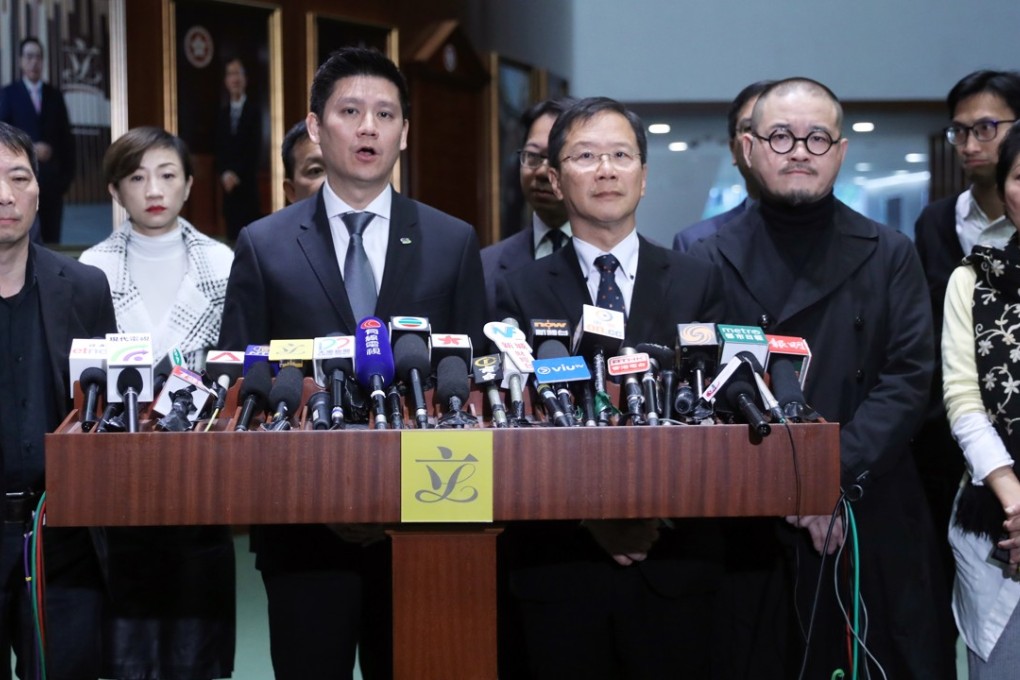Pan-dems set up new panels to protest proposed Hong Kong Legco rule changes
Opposition bloc, short on numbers in the chamber, attempts showcase value a power which pro-establishment members want to weaken

Hong Kong’s pro-democracy legislators attempted to showcase the benefits of a power that their opponents want to take from them, by voting on Wednesday to set up committees looking into two hot-button local issues.
The changes are likely go through with Legco president Andrew Leung Kwan-yuen ordering extra meetings between Wednesday and next Monday, or until the debate on the amendments is completed.
Currently, Legco has to set up a select committee once 20 of its 70 lawmakers back a petition to do so. The pro-establishment camp has suggested raising the threshold to 35.
Pro-democracy camp convenor Charles Mok said Wednesday’s move was an attempt to showcase the value of the current rules.